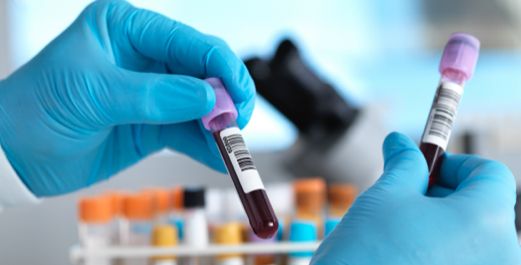- 6001 MD and PhD specialists available to provide peer-to-peer support for test selection and results interpretation
- Plus, longitudinal patient results for insights that can guide long-term care decisions
A better transplant testing journey for patients & providers
From pre-transplant to matching and post-transplant testing, expedited turnaround times and dedicated support are essential to providing exceptional transplant experiences and outcomes for patients, donors, and their medical care team. As a leader in healthcare diagnostics, Quest Diagnostics is uniquely qualified to help with our comprehensive menu of HLA typing and infectious disease testing, expedited transport and processing, and support for patients and caregivers during their critical window of opportunity. And our medical team of 600+ MDs and PhDs stands ready to provide caregivers with esoteric consultation.1
Offer the best experience at every step
Explore our transplant tests
With one of the most comprehensive transplant testing portfolios available today, Quest Diagnostics Specialized Transplant Services is here to help support testing needs across the transplant journey
Achieve better outcomes with meaningful support throughout the entire transplant experience
No other commercial lab offers the Quest combination of expedited turnaround times and broad testing portfolio, or our specialized level of service for advanced infectious disease transplant testing, to help improve outcomes.
- Meet the accelerated timelines of transplants with prioritized testing. Results are provided within 24 hours for donor testing and within 8-122 hours for post-transplant testing
- Complimentary Quest transplant shipping kits expedite specimen transport, identification, and processing when timing is critical
- Tracking of samples that begins at the point of FedEx pick up and continues through resulting
- Expert support ranging from specimen-specific details to workflow concerns through our Specialized Transplant Services and dedicated help line.
- Live, in-person, toll-free phone and email assistance Monday–Saturday, 7AM–8PM EST
- Our online Quanum™ platform streamlines test and supply ordering, specimen pickup scheduling, and results access, regardless of EMR, helping teams across geographical locations simplify complex care
- Flexible billing solutions help you best meet your patients’ needs
- Real-time estimation avoids billing surprises
- Patient Assistance Program adjusts some or all lab charges if patients can’t afford testing
- In-network status with all major insurers, covering 92% of all insured patients delivers low to no co pay for testing
- 2,200 Patient Service Centers, including many in retail locations, streamlines care and makes testing convenient for patients across the US
Explore the latest in transplant testing and services
We’re eager to share what we’ve done to improve transplant experiences and outcomes.
Discover our new CMV genotypic resistance testing
Ensure better outcomes with our new cytomegalovirus (CMV) genotypic resistance testing. This advanced test offers precise detection, rapid results, and supports tailored antiviral therapies for transplant patients.
What's New?
Now introducing APOL1
Quest Diagnostics now offers Apolipoprotein L1 Renal Risk Variant Genotyping (APOL1). The APOL1 test confirms the presence of 2 apolipoprotein L1 gene risk variants, providing insight into a potential donor’s risk of developing chronic kidney disease (CKD). To learn more about how APOL1 insights can help overcome previous barriers for higher-risk donors, speak with a Quest representative.
VOLUME CALCULATOR
Get quick answers to sample type and volume questions

Collection Instruction video
1 Pre-transplant testing guidance should be referred to our Chantilly FDA-registered transplant testing laboratory. Additional testing guidance, including post-transplant testing, can be provided by our dedicated Quest MDs and PhDs.
2 8-12 hour resulting for most assays when shipped via FedEx with a Quest shipping kit.






